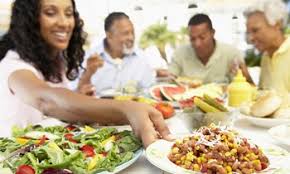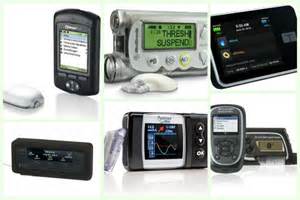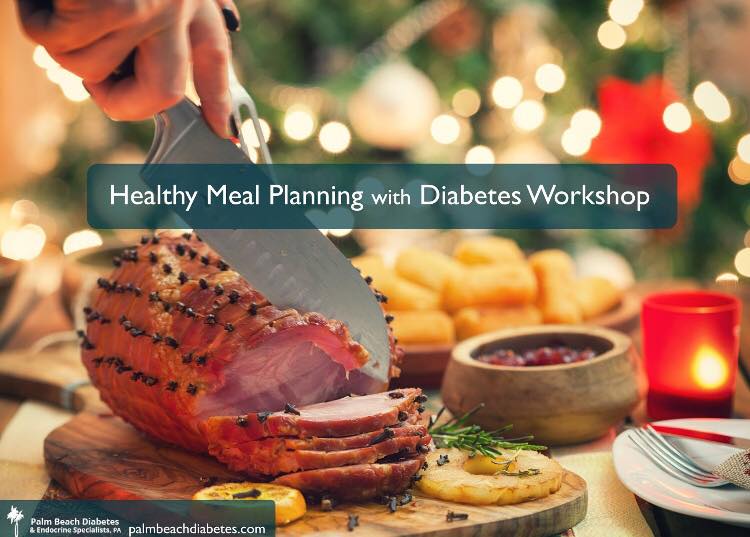Tips to Manage Blood Sugars in the Heat!
By: Jessica Hrdlicka MS, RD, LD/N, CDCES
In South Florida we have officially reached the Wow it is HOT season! And while this is a great time to go swimming, meeting with friends and BBQs, the heat can play a big role on your blood sugars.
The high temperatures can definitely cause sweating, dehydration and fatigue, but also high or low blood sugars. When your body is trying to cool itself down glucose is used which may lead to hypolgycemia, while when your body is under stress from the high heat your liver releases glucose into your blood stream causing hyperglycemia.
This may sound confusing, but here are a few tips to beat the heat:
- Hydrate. With increased sweating and high temperatures we may need more fluid during the Summer months. It is recommended for men and women to consume anywhere from 9-13 cups of water per day depending on weight, height and activity levels. Be careful using only Caffeinated beverages or diet sodas as these are less hydrating than water. You can use sparkling water, water infused with fruit & consult with your physician to determine if additional electrolytes are needed for you such as a low sugar sports drink.
- Notice your blood sugar trends. How does your blood sugar respond in the heat? Which activities raise or lower your blood glucose levels. Once you can find your own bodies pattern you can work with your healthcare professional to set up a customized plan for you to handle the heat!
- Plan for some shade or breaks. Swimming for long periods of time, sitting on the beach or playing sports outdoors can quickly lower or increase blood glucose levels. Do not forget to take breaks, drink water, pack snacks and always have low blood glucose treatments available such as juice, glucose tablets or raisins!
For more information on diabetes management, weight loss and nutrition call 561-659-6336 ext 8012 to schedule an appointment with a certified diabetes care education specialists or registered dietitian today. Please enjoy our June 2022 Living Well with Diabetes Newsletter!
New Developments in GLP-1 Medication
By: Charles Chaboude MSN, ARNP
In early May, the drug Ozempic received FDA authorization to prescribe a higher 2mg per week dose. This is effective for our patient population as a treatment for type 2 diabetes mellitus and as a weight loss medication. Glucagon-like peptide-1 (GLP-1) receptor agonists were first introduced to the market in 2005 and there have been multiple advancements using this therapy. There are multiple brands of GLP-1s and they began with twice daily injection, then once daily injection, and now there are options for once weekly and a once daily oral form. The self-injections are very simple and the convenience of once a week dosing can help streamline medication lists.
GLP-1 is produced by the intestines and is released in response to meal intake. GLP-1 agonists have multiple effects on the body, including enhanced insulin (hormone to decrease blood glucose) release and reduced glucagon (hormone to increase blood glucose) release, both of which are dependent on blood glucose levels. GLP-1 also causes the central nervous system to suppress appetite, and in the intestinal tract to lower gastric emptying which can decrease glucose absorption. The effects on appetite and gastric emptying make these medications great for treating obesity, which is a common comorbidity for diabetic patients. This is just a small insight into the way these medications work.
The most common side effects are gastrointestinal (abdominal bloating, nausea, vomiting, diarrhea, or constipation), fatigue, and headache. There is a chance that if a patient already has diabetic retinopathy starting a GLP-1 can temporarily make this worse before it improves. There is also a risk of pancreatitis and gastroparesis while on GLP-1 therapy. These medications are contraindicated in patients with a personal or family history of MTC and in patients with multiple endocrine neoplasia syndrome type 2 (MEN 2). Some of the medications in this class have been shown to decrease the risk of stroke and heart attack, so patients at high risk for cardiovascular disease, patients with uncontrolled glucose, and patients that could benefit from weight loss may be good candidates for this type of medication.
Please note, this treatment may not be ideal for every patient. You should always speak with your provider about which medications are right for you.
Navigating Summer Barbeques and Picnics – Tips for People with Diabetes
By: Sara Saleh – Dietetic Student Intern – The University of Alabama
The season is here for BBQ’s, picnics, sunshine, and fun! Diabetes shouldn’t hold you back from attending your weekend outdoor celebration. While managing your diabetes and making healthy choices may seem difficult when all that fun unravels, it’s key to staying healthy and feeling energized. With practice you can learn to navigate your way through any summer occasion. Here are some tips that can help you create a well-balanced meal and maintain your blood sugars.
Divide your plate
Make half of your plate non starchy vegetables. Zucchini, asparagus, cucumbers, tomatoes, bell peppers, eggplant, and squash are all in season. If you’re worried that vegetables won’t be an option at the party, offer to bring a dish. Grilled vegetable kabobs are delicious and will surely delight the other guests. Fill one quarter of your plate with protein; it helps you stay full and lowers that blood sugar spike. Choose lean proteins such as grilled chicken breast without the skin or shrimp skewers; and If burgers are on the menu aim for 90% lean ground beef. Fill the other quarter of your plate with a starch. That’s right, carbs aren’t completely off the books. This can be your corn on the cob or bun for your burger. Try to include fiber such as black beans, green beans, or lentils because it also helps slow digestion and reduce sugar spikes.
What’s in that secret recipe?
Let’s face it, BBQ’s and picnics are full of those family secret recipes. You know, the “to die for” dishes that leave us begging for their true ingredients. Many of these dishes have tons of added sugar and the truth is, we really don’t know what’s in them. Be on the lookout for the common culprits such as baked beans, coleslaw, and potato salad. BBQ and Teriyaki sauce are also often made with lots of sugar, try to opt for meat made without it. You don’t have to exclude all the tasty sides but try to limit it to one quarter of your plate.
Avoid the ‘Stomach Bug’
We don’t want to spoil the fun but because time and temperature play a role in bacteria growth, BBQ’s and picnics are a great opportunity for its rapid multiplication. So how long can that food sit out before you politely decline seconds? The U.S. Food and Drug Administration (FDA) recommends keeping cold food cold and hot food hot. This means keeping cold dishes at or below 40°F until they are ready to be served and keeping hot foods above 140°F. Food should not sit out for longer than 2 hours or 1 hour if it’s above 90°F outside. Make sure grilled meats are cooked all the way through and raw foods or tools used to prepare them do not contact ready to eat foods.1
 Summer Sips
Summer Sips
It’s hot outside, and while hydration is always important, its especially essential now. Make sure you drink plenty of water. The Academy of Nutrition and Dietetics recommends that healthy women drink 9 cups of water daily and men consume 13 cups.2 If water’s not your favorite, try infusing it with fresh fruit, cucumbers, or mint to “jazz” it up. Drinks such as soda, fruit juice, lemonade, and alcohol have lots of sugar, so be aware that they can raise your blood sugar.
Sweets
If you know that dessert is in the books, try to plan ahead. Perhaps forgo the bun or the starchy side during the main course. With the summer heat comes yummy seasonal fruits, try opting for those that are lower in sugar such as blueberries, strawberries, blackberries, and raspberries. You can even get creative by grilling fruits such as peaches or apples with a dash of cinnamon. And remember sugar free doesn’t always mean carb free and because all carbs turn into sugar once they’re digested in the body, it’s important to be careful of desserts labeled “sugar free.”
With these summer tips you can successfully keep high blood sugar levels at bay. Navigating summer BBQ’s and picnics doesn’t have to leave you feeling excluded. Use this opportunity to unwind, laugh, and try new recipes and foods while spending time with family and friends. Go ahead splash in the pool!
References
- Center for Food Safety and Applied Nutrition. Handling food safely while eating outdoors. U.S. Food and Drug Administration. https://www.fda.gov/food/buy-store-serve-safe-food/handling-food-safely-while-eating-outdoors. Accessed June 24, 2022.
- Gordon CB, Klemm and S. How much water do you need. EatRight. https://www.eatright.org/food/nutrition/healthy-eating/how-much-water-do-you-need. Accessed June 24, 2022.
Announcing Brand New Insulin Pump & CGM Class Sessions!

![]()
Advanced Pump Class
West Palm Beach Location
Temple Israel 1901 N. Flagler Drive
West Palm Beach, FL 33401
Tuesday July 12th 10am-12pm
CGM Data Interpretation Class
Temple Israel 1901 N. Flagler Drive
West Palm Beach, FL 33401
Tuesday September 20th 10am-12pm
& Weight Loss Class Sessions!

![]()
![]()
![]()
Join our classes to stay motivated,
& stay healthy!
West Palm Beach Location
Temple Israel 1901 N. Flagler Drive
West Palm Beach, FL 33401
Tuesday August 9h 10am-12pm
Jupiter Location:
550 Heritage Drive, suite 150 Jupiter FL, 22458
Wednesday July 13th 5:30pm-7:30pm
Boynton Beach Location:
6056 Boynton Beach, Suite 245
Boynton Beach FL 33437
Thursday July 21st 10am-12pm
If interested attending this program please contact our scheduling department at (561) 659-6336 Extension 8001 today!
At Healthy Living with Diabetes we want to ensure that you are satisfied with all services received. We also would like your input on educational workshops that you would like us to offer, information you would like to read about in Healthy Living with Diabetes Monthly or feedback on any workshop that you may have attended. You can contact the director of education personally by email jcook@PBDES.COM or leave a message at (561) 659-6336 ext. 8012. We would love to hear from you!

![]()
![]()
![]()
Check us out on the web!
www.palmbeachdiabetes.com
www.facebook.com/pbdeseducation
www.twitter.com/WpbDiabetes


